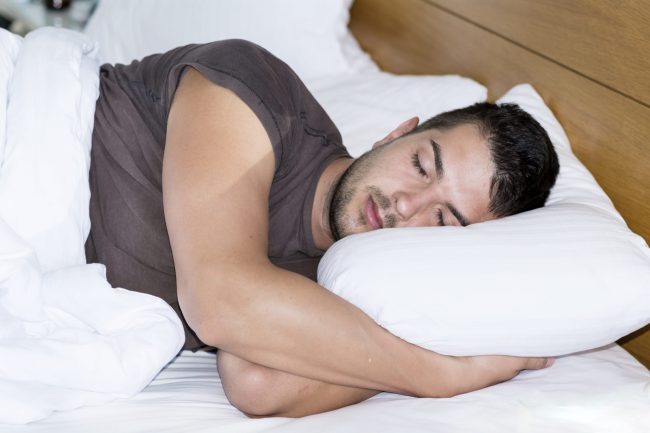The Perpetual Nature of Snoring and Sleep Apnea

How One Night of Snoring Perpetuates More Severe Snoring
Yes it’s true that snoring often leads to sleep apnea. One night of aggravated sleep is all it takes to set the wheels in motion. Consider how tired an individual may be the night after snoring that resulted in continual interruption of Deep and REM sleep. As a result of exhaustion from the previous night their body and muscles quickly and easily become even more relaxed on the second night causing a repeat performance that is often times worse. This cycle continues until the snoring is remedied and they are able to get a good nights rest.
When we consider this scenario it is easy to understand how snoring can and often does lead to obstructive sleep apnea.
Daytime Sleepiness
If you snore, pay close attention to your body and the signs/symptoms that occur from aggravated sleep. Feeling tired during the day is a strong indication that your snoring is affecting your sleep quality. Despite the possibility that you may not be experiencing apneic episodes, it is likely your snoring will eventually lead to OSA (obstructive sleep apnea).
Diagnosing and Treating Snoring Early
Paying attention to the warning signs of sleep deprivation caused by snoring or sleep apnea can have a tremendous effect on the success and type of treatment needed. It is important that you have an overnight sleep study done to determine is you have sleep apnea. Talk to your PCP about your concerns and get a referral to a Sleep Physician to get a overnight sleep test. Since more severe sleep apnea most often requires CPAP therapy your options become more limited as your condition worsens. Early diagnosis and treatment is equally important for preventing the many health risks associated with snoring and sleep apnea. Less invasive treatments are more often a viable treatment for snoring/sleep apnea, and offer a better chance of success, when diagnosed in the earliest stages.

